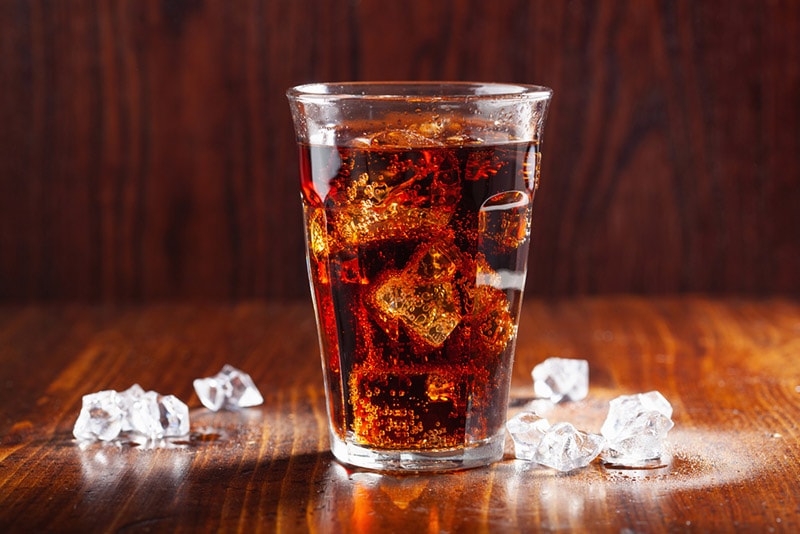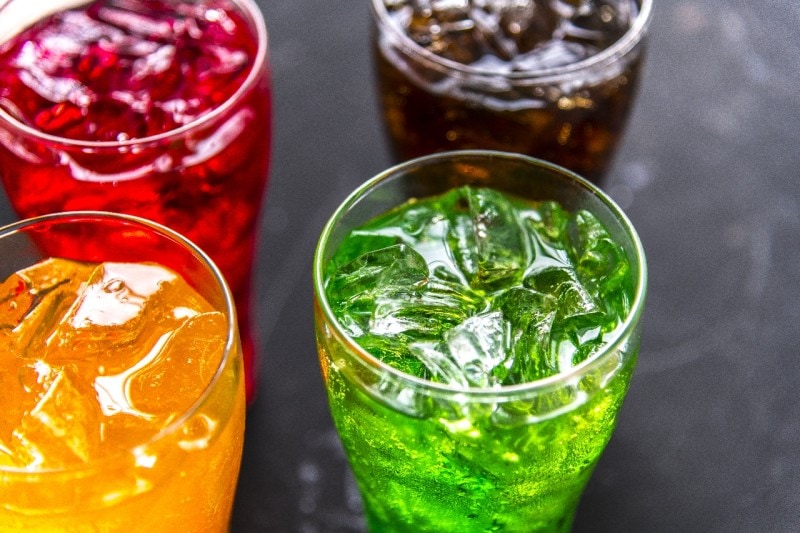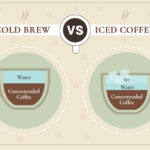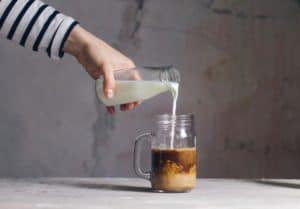
Everyone knows the classic taste and rush from drinking a Diet Coke, but the caffeine content of this beverage may surprise you. Diet Coke with Splenda has a different caffeine content than regular Diet Coke, and it’s not always easy to find out exactly how much caffeine is in the drink. To help clear up any confusion and uncertainty, we’ve found the answer to this question for you.
Diet Coke Caffeine Content
Diet Coke with Splenda contains roughly 3.83 mg of caffeine per fluid ounce. So, a 12-ounce can of this particular variety of Coke has a total of 46 mg of caffeine. Colas lead the caffeine race when it comes to soda, with most containing around 30 to 40 mg per 12-ounce can.
Is Diet Coke Healthier Than Regular Coke?
When it comes to soda, the debate over which is healthier has been raging for years. First, note that both regular and diet soda contain caffeine, but the amount can vary greatly. Regular Coke typically contains about 34 mg of caffeine per 12 ounces, while diet coke surprisingly contains 46 mg of caffeine per 12 ounces.
Also, regular sodas typically contain more sugar than diet sodas. Regular coke contains up to 40 grams of sugar per 12 ounces, while diet coke contains no sugar and is sweetened with a blend of aspartame and acesulfame potassium. The result: a low-cal soda that’s way less likely to negatively affect your blood sugar levels.
Diet Coke also contains less than 1 calorie, as opposed to the 139 calories in regular coke. So, in terms of health benefits, Diet Coke seems to take the lead. However, some people (such as pregnant women) may want to use caution before consuming aspartame and acesulfame potassium, as they have been associated with negative health effects as well, though in higher consumption.
How Does Diet Coke Compare to Other Popular Drinks?
When it comes to caffeine content, the most popular drinks vary widely. Coffee, for example, can range from a mild 30 mg of caffeine per 8-ounce cup to a potent 140 mg per cup – though the average is about 95 mg in an 8-ounce cup. Tea is a bit more consistent in range, with most types of tea containing between 25 and 47 mg of caffeine per 8-ounce cup. Energy drinks can deliver a hefty dose of caffeine, with some brands containing anywhere from 160 to 300 mg of caffeine per 10-ounce can.

Non-Soda Caffeine Sources
As you may already know, caffeine isn’t just found in soda and energy drinks. Many foods and beverages contain caffeine, including chocolate, tea, coffee, and even some types of medication. In fact, it’s imperative to read labels carefully if you’re sensitive to caffeine, as some foods and beverages may contain more or less caffeine than expected. For example, a 3.5 dark chocolate bar may contain as much as 50 mg of caffeine.
Energy Drinks with the Most Caffeine
Typically, you’re going to find that energy drinks contain the most caffeine per fluid ounce than any other drink in the marketplace. This surpasses coffee, tea, food, and soda. For example, the popular energy drink Red Bull contains 80 mg of caffeine per 8.4-ounce can, while the Monster Energy drink contains 160 mg of caffeine per 16-ounce can.
Rockstar Energy Drink contains around 240 mg per 16-ounce can, and Bang Energy Drink contains around 300 mg per 16-ounce serving. All of these energy drinks provide a significant boost of energy, though they vary in the amount of sugar (or other sweeteners), which can negatively affect blood sugar levels, especially in older adults.

Risks of High Caffeine Consumption
While caffeine can provide a temporary boost in energy and alertness, excessive consumption of caffeine can lead to serious health risks. Too much caffeine can increase blood pressure, cause headaches and insomnia, and make you feel anxious. Long-term consumption of high doses of caffeine is associated with an increased risk of developing heart problems and other chronic diseases.
Additionally, drinking more than 4 cups of coffee a day can increase your risk of developing type 2 diabetes. So, it definitely helps to be mindful of the amount of caffeine you consume and to limit it to moderate levels.
How to Reduce Caffeine Intake
If you’re looking to reduce your caffeine intake, there are actually a few things you can do. The first thing to do is to limit the amount of caffeine you consume by consuming half as much as your normal amount each day for 1-2 weeks. So, for example, try doing just half a cup of coffee each day, instead of a full cup.
Doing so can reduce caffeine withdrawal side effects, which have been known to cause headaches and irritation. Another option is to switch to decaf beverages. Many coffee and tea shops offer decaffeinated versions of their popular drinks, which can help reduce your overall caffeine intake.
Finally, you can try replacing caffeinated beverages with herbal teas (like Yerba Mate) or flavored water. Herbal teas are a great way to get a refreshing drink without the caffeine, while water is a great way to stay hydrated without any added stimulants or additives.
Wrapping Up
So, as you can see, Diet Coke sweetened with Splenda still contains a considerable amount of caffeine. It’s a great choice for anyone looking to avoid sugar spikes (or higher-calorie drinks) while getting a good boost of energy throughout the day. That being stated, note that the FDA recommends consuming no more than 400 mg of caffeine a day to avoid negative health effects, so you still want to drink this particular Coke variety in moderation.
- https://www.coca-colacompany.com/faqs/what-is-caffeine#:~:text=Coke’s%20caffeine%20content%20is%2034mg,you%20have%20caffeine%2Dfree%20soda%3F
- https://www.myfooddata.com/articles/high-caffeine-foods-and-drinks.php
- https://www.consumerreports.org/cro/magazine/2012/12/the-buzz-on-energy-drink-caffeine/index.htm
- https://my.clevelandclinic.org/health/articles/15496-caffeine-how-to-hack-it-and-how-to-quit-it#:~:text=First%20alternate%20between%20decaf%20and,habit%20without%20causing%20withdrawal%20symptoms
- https://uhs.princeton.edu/health-resources/caffeine#:~:text=Moderate%20caffeine%20use%20(400%20milligrams,gastrointestinal%20aches
- https://www.fda.gov/consumers/consumer-updates/spilling-beans-how-much-caffeine-too-much#:~:text=For%20healthy%20adults%2C%20the%20FDA,associated%20with%20dangerous%2C%20negative%20effects
Featured Image Credit: MR.AUKID PHUMSIRICHAT, Shutterstock













